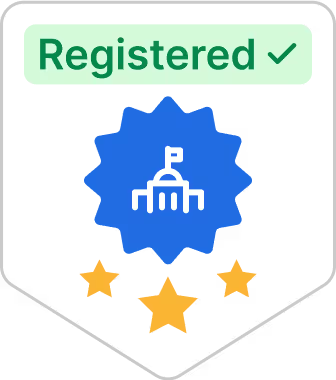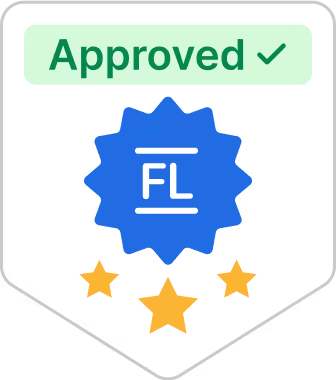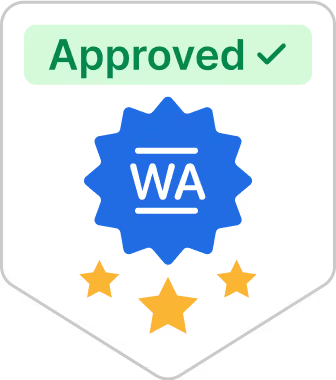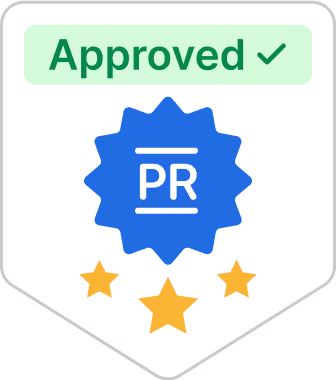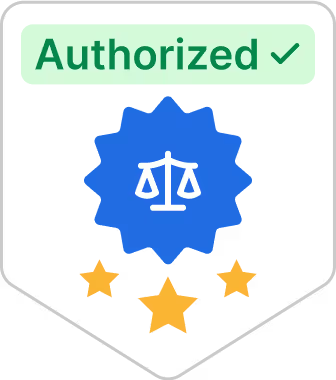Everything you need to get a Birth Certificate
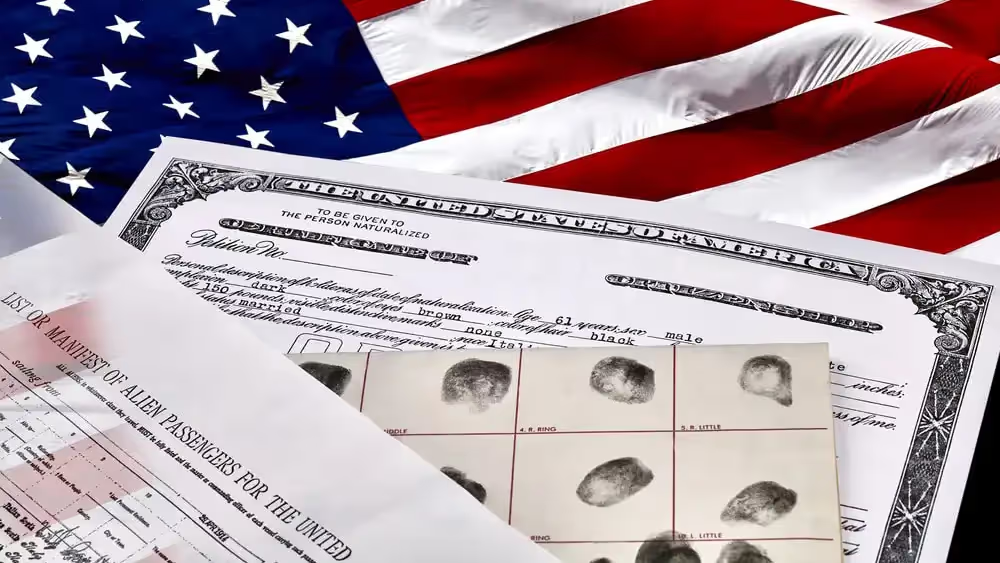
In the United States, a birth certificate is an essential identifying document. It certifies your date, time, and place of birth, as well as the names, ages, and birthplaces of your birth parents. Beyond providing a record of your birth and proving U.S. citizenship, a birth certificate is used to obtain other forms of identification, like a social security card or a driver’s license.
In certain instances, you’ll need a birth certificate to enroll in school, apply for government assistance, join the military, get a marriage license, secure insurance benefits, claim a pension, or get a passport. Sometimes, underage children need a copy of their birth certificate to travel across state lines.
Maybe your birth certificate was lost, stolen, damaged, or destroyed. Perhaps you never had one to begin with. Or maybe you need to obtain your child’s birth certificate or a birth record for another close relative. In any case, you’ve come to the right place.
At GOV+, we’re dedicated to helping people update, order, and replace vital records. Here, you’ll find guidance and assistance for obtaining a birth record. What do you need to get your birth certificate? Keep reading to find out.
What do I need to get a Birth Certificate?
In the United States, the federal government doesn’t issue birth certificates. They’re maintained and distributed by individual states and U.S. territories. So, what do you need to get a birth certificate? The answer depends on the requirements set by the vital records office in the state or territory where you were born.
The Centers for Disease Control (CDC), a government agency, has a user-friendly directory with links for all the states and territories. When you navigate to your birthplace, you’ll find information about the cost and application process of requesting a birth certificate.
Each page includes a link for obtaining a birth certificate from the local vital records office, as well as a list of required information and necessary documents. This website also offers helpful guidance for getting a death certificate, marriage record, and divorce records.
Required information for getting a Birth Certificate
When you fill out the application form, you’ll need to provide information about yourself or the person on record (also known as the registrant).
To get a birth certificate, you should have the following information ready:
- Full name
- Sex
- Date of birth
- Birthplace, including the city, county, and hospital if applicable
- Parents’ full names, including mother’s maiden name
- Parents’ birthplaces
- Reason for request
- Social security number
You’ll also need to provide up-to-date contact information such as a phone number and email address. Most importantly, you’ll submit a mailing address, which is where the birth certificate will be sent.
Reason for request
One critical piece of information you’ll need to provide when ordering a birth certificate is a reason for your request.
The reason for requesting a birth certificate could be to:
- Obtain or renew another form of identification such as a driver’s license or a social security card
- Enroll in school
- Prove employment authorization
- Secure insurance benefits
- Get a marriage license
- Provide documentation for court proceedings
- Enter the armed forces
- Get welfare assistance, veteran’s benefits, or other government benefits
- Replace a lost, stolen, or damaged birth certificate (Read our guide on “what to do if I lost my birth certificate” for more detailed information)
- Get an additional copy or informational copy
- Obtain a delayed birth certificate
Some application forms may present various options, while others ask you to fill in the blank. Requesting a delayed birth certificate means it wasn’t filed within a year of the person’s birth. In that case, you’d be requesting the original document.
What identifying documents do you need to get a Birth Certificate?
When requesting an original or certified copy of a birth certificate, you’ll need to verify your identity. This might involve uploading a PDF copy or image file of your social security card, driver’s license, passport, or another government-issued photo ID.
If you don’t have this type of valid identification, you can usually provide two or three alternative identifying documents instead. Though approved documents vary, you might be able to use a work or school ID card, property records, or a bank statement. Some states may allow other verification methods, such as a notarized letter from your birth mother or father with a copy of their ID.
Acceptable identifying for getting a birth certificate may include:
- Social security card
- Driver’s license
- State-issued photo ID
- Passport
- Work ID card
- School ID card
- Property records
- Bank statements
- Notarized letter from a birth parent
Some vital records offices have less stringent requirements. It’s possible you’ll be able to obtain a birth certificate without proper identification as long as you have a valid social security number. In this scenario, you may only need to sign a sworn statement of identity.
Does your Birth Certificate application need to be notarized?
In some states, such as California, application forms must be notarized. This means a public notary will review the form and documents to assure they’re authentic and trustworthy.
If the state you were born in requires notarization, you can find a notary at a law office, tax accounting firm, post office, or public library. In addition to the birth certificate form, be sure to bring your ID with you to your notary appointment.
Cost of getting a Birth Certificate
The fees associated with getting a birth certificate vary from state to state. However, the cost of original birth certificates and certified copies is usually around $25.
After filling out the form and providing the necessary documents for an online order request, you can pay the certificate fee via credit card through a secure payment portal. If you’re mailing a request, you can usually pay the appropriate fee with a check or money order.
Requesting a Birth Certificate for someone else
As we mentioned, you can request a birth record for someone else, such as your child. If you recently had a baby, you’ll want to obtain an original birth certificate as soon as possible. A representative from the nearest vital records office usually initiates the process for children born in hospitals. However, if your child was born at home or at a birthing center, you may need to apply on your own.
Generally speaking, you’re only able to order a birth certificate for a direct family member, but the definition of “direct family member” varies. Since the list of allowed relatives is different from state to state, it’s best to check with the vital records office to make sure you’re qualified to request the document.
You may be able to order a birth certificate if you are the registrant’s:
- Parent
- Legal guardian
- Stepparent
- Spouse
- Domestic partner
- Sibling
- Child
- Grandparent
- Grandchild
- Legal representative
When ordering a birth certificate for someone other than yourself, you’ll need to state your relationship with that person. Some states can issue heirloom birth certificates. Sometimes called commemorative certificates, these non-legal documents are obtained by a person’s children, grandchildren, or other relatives for sentimental purposes.
If you’re not an immediate family member, you might need to provide additional verifying documents to legitimize your request and identify yourself as a qualified applicant. This could be a copy of your own birth certificate or Power of Attorney (PoA) documentation.
Birth Certificate request: Certified Copy vs. Original Copy
What’s the difference between a certified copy and an original copy of a birth certificate? An original birth certificate is created at the time of a person’s birth, typically within a hospital setting. It’s then filed with the state’s vital records office, certifying an official and legal record of birth.
A certified birth certificate copy, on the other hand, is made by the vital records office of an individual’s state of birth at some point after the original is created. Registrars emboss, stamp, or sign the document, confirming that it’s a true and correct copy of the original. Additionally, a certified copy of a birth certificate will indicate somewhere on the document that it’s not the original. There are certain steps you have to take for how to get a certified copy of your birth certificate.
We’re here to make things easy
We offer useful information and assistance to simplify the process of obtaining and updating vital records. Using smart, cloud-based technology, we make getting a birth certificate easy. Apply for a birth certificate today using our platform!
Sources:












